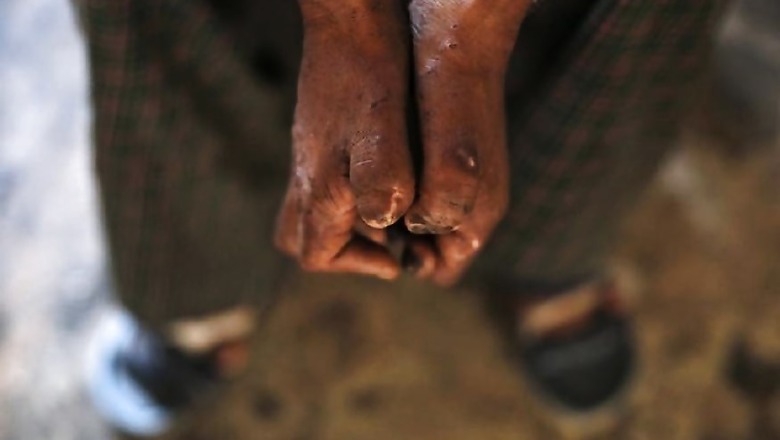
views
New Delhi: Around 2 lakh leprosy cases continue to be reported every year in the world with India accounting for more than half of them, the WHO said on Friday, adding leprosy-related "discrimination, stigma and prejudice" were the most powerful barriers in ending the disease.
WHO regional director for South-East Asia Poonam Khetrapal Singh also lauded India for repealing two legislations - one that discriminated against persons affected by leprosy and another which allowed leprosy as legitimate grounds for divorce.
She said significant numbers are detected in the South-East Asia Region, Brazil, sub-Saharan Africa and the Pacific.
"Leprosy-related discrimination, stigma and prejudice are the most powerful barriers to ending leprosy for good, especially given the disease is 100% curable when detected early.
"Though the number of leprosy cases has steadily declined worldwide, an estimated 2,00,000 cases continue to be reported every year, with India accounting for more than half," Singh said.
The official said as core public health interventions like active case-finding, improved treatment regimens and strengthened surveillance continue to drive-down leprosy's incidence and spread, the disease's bio-social components must be brought to the fore.
"As outlined in WHO's Global Leprosy Strategy 2016-2020, policies that promote inclusion and aim at ending leprosy-related discrimination, stigma and prejudice should be front and centre of all leprosy programmes, both as goods in themselves as well as powerful tools to achieve a leprosy-free region and world," she said.
Stressing on empowering people with leprosy to be "agents of social change", Singh said this could include training them in advocacy and social mobilisation to enhance community buy-in and secure high-level support and funding for leprosy programmes.
"It could also include helping them form psycho-social support networks to reduce emotional and economic distress, thereby promoting the active participation of persons affected by leprosy in society," she said.
"While the inclusion of leprosy-affected persons in vocational training is already underway in most endemic countries, these programmes should be expanded wherever possible.
"As part of this, clear information on how they can be accessed should be made available to every eligible person, thereby ensuring no one is left behind," she said.
Human rights of persons affected by leprosy must be prioritised, she added.
"Notably, in recent years India, along with other countries in the Region and beyond, has repealed legislation that discriminates against persons affected by leprosy...
"In 2016, for example, it repealed the draconian colonial-era Lepers Act, while earlier this month it repealed a law allowing leprosy as legitimate grounds for divorce. Both initiatives are to be commended," she said.
WHO's South-East Asia Region comprises Bangladesh, Bhutan, Democratic People's Republic of Korea, India, Indonesia, Maldives, Myanmar, Nepal, Sri Lanka, Thailand and Timor-Leste.
Singh also congratulated WHO Goodwill Ambassador and chairman of the Nippon Foundation Yohei Sasakawa on being awarded the 2018 International Gandhi Peace Prize for his contribution to ending leprosy in India and across the world.


















Comments
0 comment